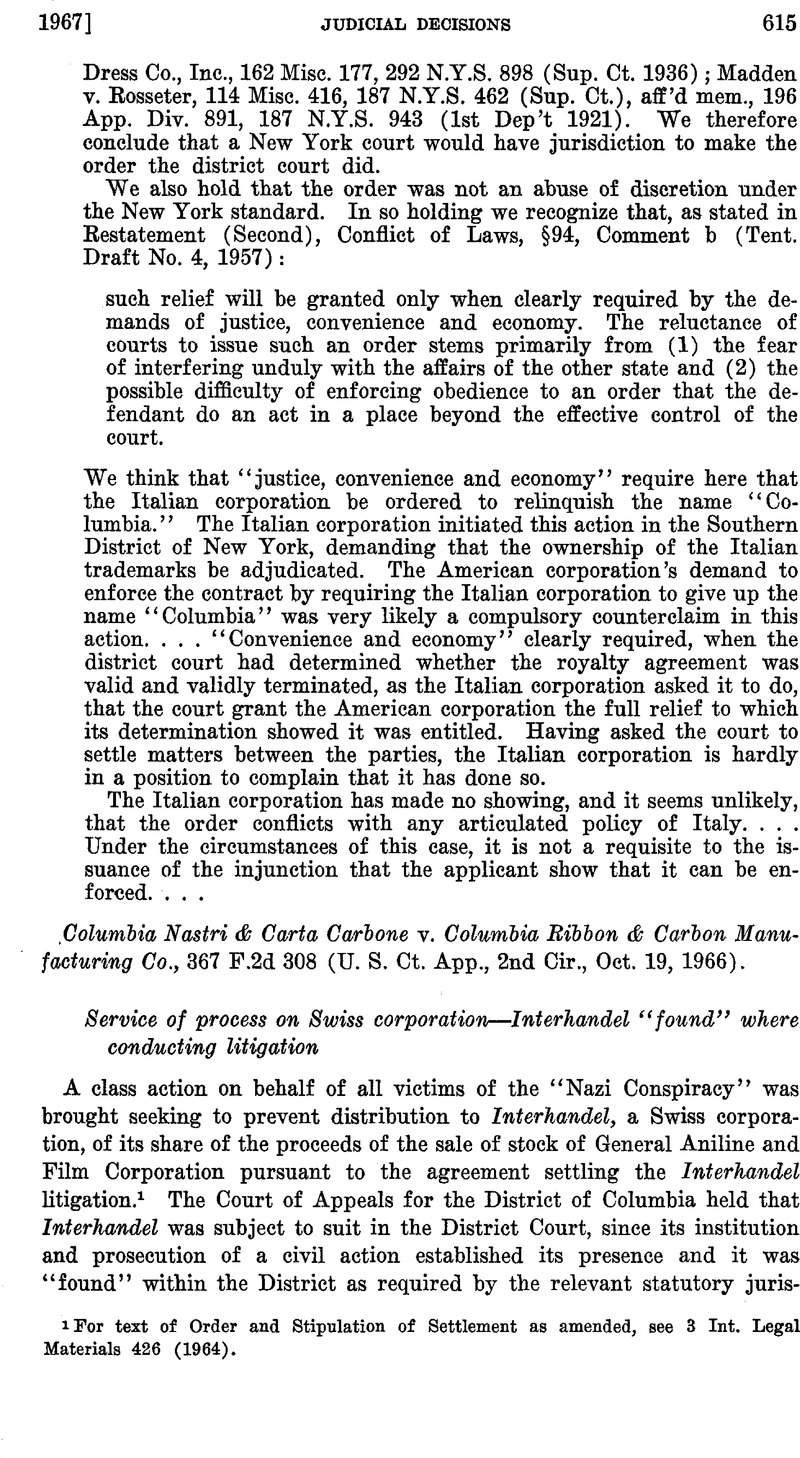No CrossRef data available.
Published online by Cambridge University Press: 28 March 2017

1 Fortext of Order and Stipulation of Settlement as amended, see 3 Int. Legal Materials 426 (1964).
1 The broad principles of choice of law established for Jones Act cases in Lauritzen were declared equally applicable to cases arising under the General Maritime Law in Romero v. International Terminal Operating Co., 358 U. S. 354, 381-384, … (1959).
2 Symonette relies heavily on Tjonaman v. A/8 Glittre, 340 P.2d 290 (2d Cir.) cert, denied, 381 TJ. 8. 925, … (1965), to support its argument that the governing law in the case should be that of the Bahamas. Although the seaman in Tjonaman was an American national, we believe the application of Norwegian law there was justified not merely because the vessel was a Norwegian flag ship, but also because the seaman had signed the Norwegian shipping articles in the office of the Norwegian Consulate General in New York and these articles provided expressly that the seaman's rights and duties would be governed by Norwegian law. The preponderance of connecting factors to the foreign jurisdiction in Tjonaman are simply not present in the pending case.
3 Even if Bahamian law were held to govern in this case, the District Judge correctly applied American maritime law in light of his finding, amply supported by the record, that Symonette had failed to prove the pertinent principles of Bahamian law. As Justice Frankfurter stated some years ago: “ It is true that this [Supreme] Court has on several occasions held international rules which had passed into the ‘general maritime law’ to be subject to judicial notice. * * * But where less widely recognized rules of foreign maritime law have been involved, the Court had adhered to the general principle that foreign law is to be proved as a fact.” Black Diamond Steamship Corp. v. Robert Stewart & Sons, Ltd., 336 TJ. S. 386, at 396-397, … (1949)